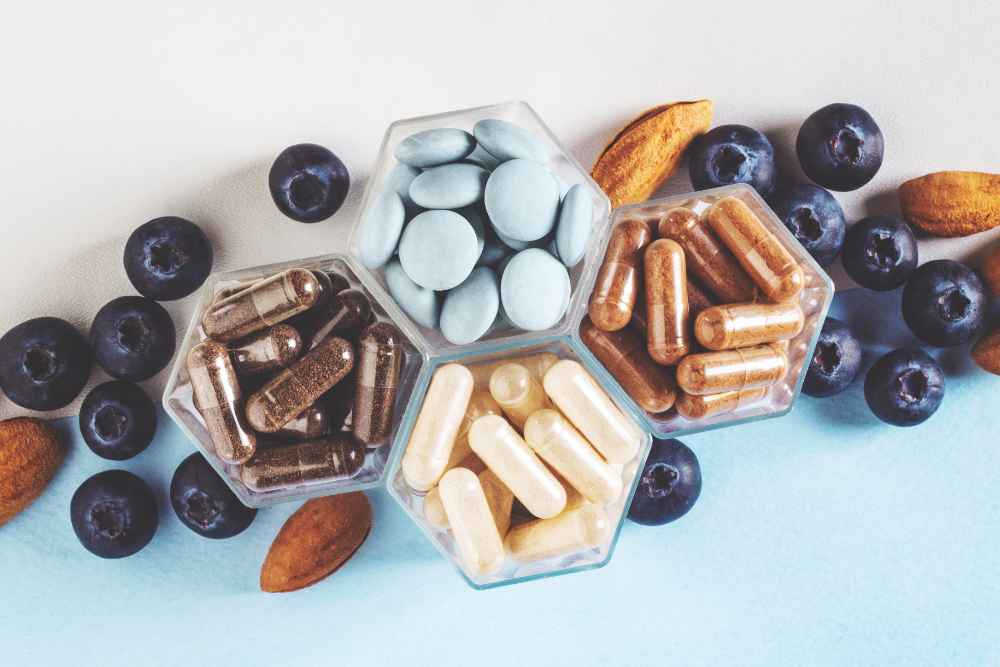In today’s fast-paced world, high blood pressure, or hypertension, has become a growing concern for many.
Hypertension is a significant risk factor for heart disease and stroke, but the good news is that there are proven strategies to lower blood pressure quickly and effectively.
Through lifestyle changes and medical management, it’s possible to control hypertension and protect your long-term health.
Blood pressure checks are offered as part of our leading heart health check-ups.
Do regular physical activity
Engaging in regular physical activity is a cornerstone of blood pressure management. Health professionals recommend 150 minutes of moderate aerobic exercise each week, such as walking, swimming, or cycling, to help lower blood pressure. Exercise strengthens the heart, enabling it to pump blood with less effort.
Over time, this lessens the force on the arteries, thereby reducing blood pressure. Incremental increases in your physical activity levels can significantly benefit your cardiovascular health, making it easier for those with hypertension to experience noticeable health improvements.
In addition to aerobic exercise, incorporating resistance training into your routine twice a week can reduce blood pressure. Resistance training, such as lifting weights, can improve the elasticity of blood vessels, contributing to better blood flow and lower blood pressure.
However, it’s crucial to gradually increase intensity and not overdo it, as too strenuous activities can momentarily elevate blood pressure.
A balanced approach to physical activity, combining both aerobic and resistance exercises, is critical to achieving and maintaining optimal blood pressure levels.
Maintain a healthy weight
Achieving and maintaining a healthy weight are vital steps in lowering blood pressure. Excess weight can increase the strain on your heart and raise your blood pressure.
Health experts suggest using the Body Mass Index (BMI) as a general guide to determine whether you’re at a healthy weight for your height.
Losing even a small amount of weight if you’re overweight or obese can help reduce your blood pressure. Weight loss can enhance the effectiveness of blood pressure medications, making this lifestyle change doubly beneficial for individuals with hypertension.
Losing weight involves both dietary modifications and increasing physical activity. A gradual reduction in calorie intake and regular exercise can lead to sustainable weight loss. Focusing on a diet rich in whole grains, fruits, vegetables, and lean proteins can also support weight loss efforts.
We advise monitoring portion sizes and avoiding high-calorie, low-nutrient foods; an essential strategy for maintaining a healthy weight.
Every individual’s body reacts differently, so it’s necessary to find a balanced approach that works for you, possibly with the guidance of a healthcare professional.
We offer nutritional guidance as part of our full-body health assessments.
Follow a healthy diet

Cut back on sugar and refined carbohydrates
Reducing sugar and refined carbohydrates is one of the most effective dietary changes for lowering blood pressure. High sugar consumption and refined carbohydrates can lead to weight gain and increased blood pressure.
Foods high in these components can also cause spikes in blood sugar levels, leading to insulin resistance. Over time, this can damage the blood vessels and contribute to hypertension. Transitioning to a diet that consists of whole foods and complex carbohydrates, such as whole grains, can significantly improve blood pressure readings.
Complex carbohydrates are slowly digested and absorbed, preventing sudden spikes in blood sugar and insulin levels. This steady blood sugar control can help lower blood pressure by reducing the strain on blood vessels.
Additionally, foods rich in fibre, a complex carbohydrate, can aid in weight loss by keeping you fuller and longer, further supporting blood pressure reduction.
Limiting sugar-sweetened beverages and snacks while increasing your intake of whole foods is a practical start towards a healthier diet and lower blood pressure.
More potassium, less salt
Adjusting your intake of potassium and salt (sodium) can also have a significant impact on lowering blood pressure.
Potassium helps to balance the amount of sodium in your cells, and consuming enough can help flush out excess sodium through urine. This effect can reduce blood pressure by easing tension in the blood vessel walls. Foods rich in potassium include:
- Fruits (bananas, oranges, and apricots),
- Vegetables (spinach, beets, and carrots), and
- Dairy products (milk and yoghurt).
Conversely, high salt intake has the opposite effect, drawing more fluid into the blood vessels and increasing blood pressure. Thus, reducing salt intake while increasing potassium consumption can be an effective strategy for controlling hypertension.
The American Heart Association recommends limiting sodium intake to less than 2,300 milligrams a day, moving toward an ideal limit of no more than 1,500 mg daily for most adults.
Incorporating foods high in potassium into your diet not only aids in controlling blood pressure but can also counterbalance the effects of salt consumption. Balancing potassium and salt is crucial for maintaining healthy blood pressure levels.
Limit processed food
Processed foods are often high in sodium, unhealthy fats, and added sugars, contributing to increased blood pressure. Choosing fresh, whole foods over processed ones can make a significant difference in managing blood pressure.
When shopping, read labels carefully to avoid products with high sodium and sugar content. Incorporating more home-cooked meals and choosing minimally processed snacks can further aid in blood pressure control.
Eat some dark chocolate
Surprisingly, eating moderate amounts of dark chocolate has been linked to lower risks of cardiovascular diseases, including lower blood pressure.
Dark chocolate (at least 70% cocoa) contains flavonoids that can improve heart health by increasing nitric oxide levels in the body, which helps to relax blood vessels and lower blood pressure.
Consume dark chocolate in moderation. It is also high in calories and can contribute to weight gain if overindulged.
Quit smoking and limit your alcohol intake
Quitting smoking and moderating alcohol consumption are crucial steps in reducing blood pressure. Smoking damages blood vessels and can significantly increase blood pressure, while excessive alcohol intake can lead to long-term blood pressure problems.
Quitting smoking and limiting alcohol to recommended levels – not more than one standard drink a day for women and two for men – can have remarkable benefits for blood pressure and overall heart health.
Get a good night’s sleep
Quality sleep is essential in maintaining healthy blood pressure levels. Sleep allows the body to regulate stress hormones and helps to maintain a healthy nervous system.
Adults should aim for 7-9 hours of quality sleep per night.
Developing good sleep habits, such as adhering to a regular sleep schedule, creating a restful environment, and avoiding stimulants before bed, can significantly improve sleep quality and, in turn, blood pressure.
Reduce stress
Chronic stress can contribute to high blood pressure by prompting unhealthy habits such as poor diet, smoking, and alcohol use.
Employing stress reduction techniques like mindfulness, meditation, regular exercise, and deep breathing can help manage stress levels and reduce blood pressure.
Additionally, identifying sources of stress and developing coping mechanisms can further mitigate the impact of stress on blood pressure.
Managing blood pressure is a lifelong commitment
Effectively lowering and managing blood pressure requires long-term commitment and lifestyle changes.
It is essential to monitor blood pressure levels regularly, adhere to a healthy lifestyle, and consult healthcare professionals for guidance.
By remaining committed to these changes, individuals can significantly improve their blood pressure levels and overall health.
Get support
Managing blood pressure is not a journey to undertake alone. Seeking support from family, friends, or support groups can provide encouragement and motivation.
Professional guidance from healthcare providers, including doctors, nurses, and dietitians, is invaluable in creating and maintaining effective blood pressure management plans.
Together, with the proper support and commitment, managing blood pressure can be a successful and life-improving venture.
If you’d like support with managing your blood pressure, we’d love to support you. Please head over to our contact page, we’ll be in touch very soon.

